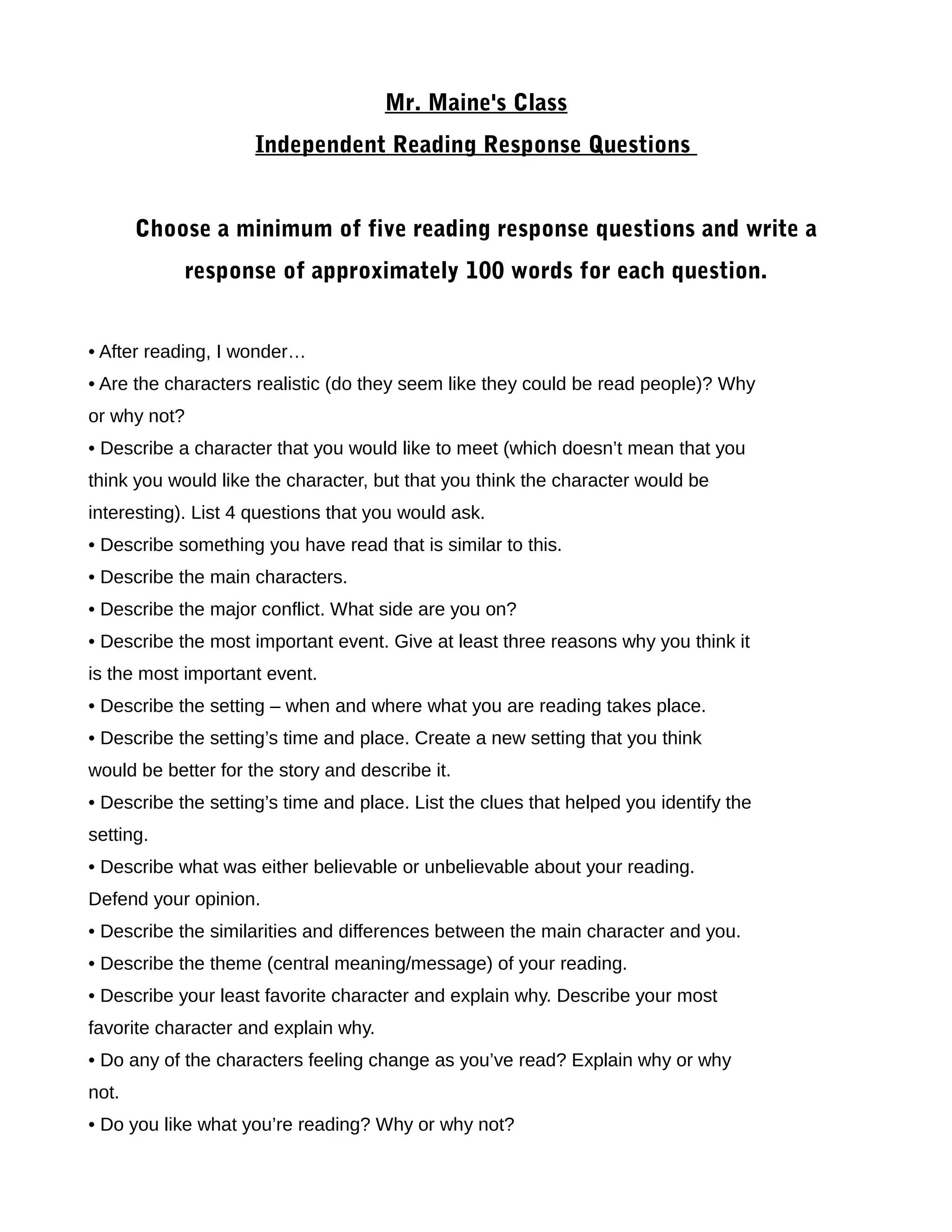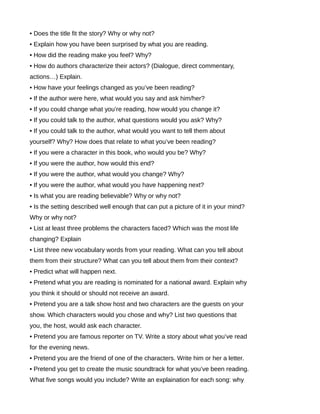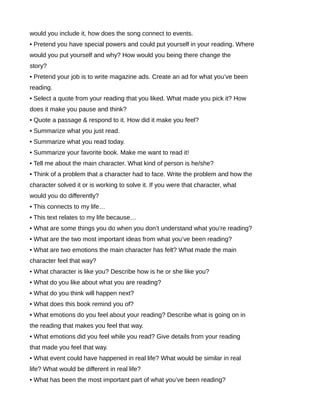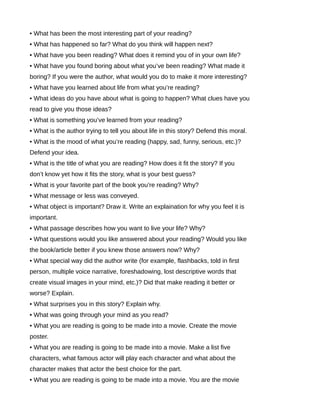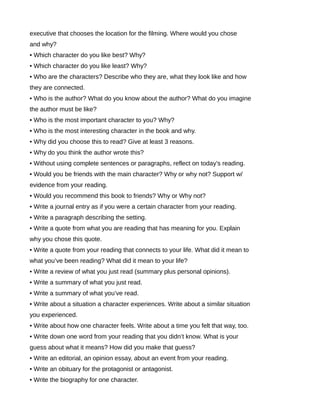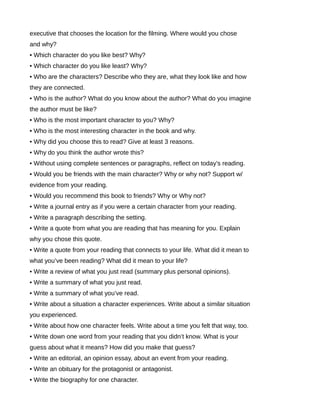The document provides a list of over 100 reading response questions that students can choose from to write short responses about an independent reading assignment. The questions cover a wide range of topics such as describing characters, settings, conflicts, favorite parts, making connections or comparisons to one's own life, making predictions, and reflecting on themes or personal reactions. Students are instructed to pick a minimum of five questions and write approximately 100-word responses for each.
